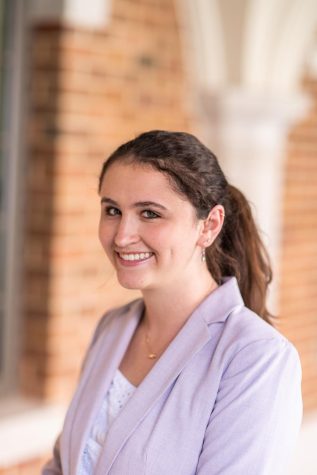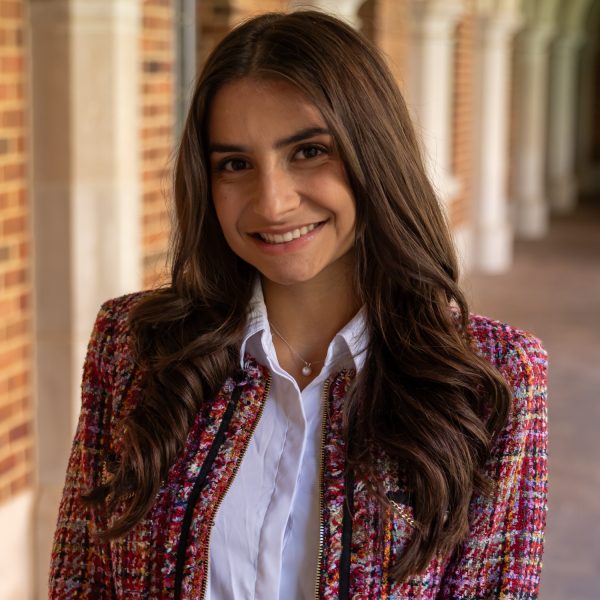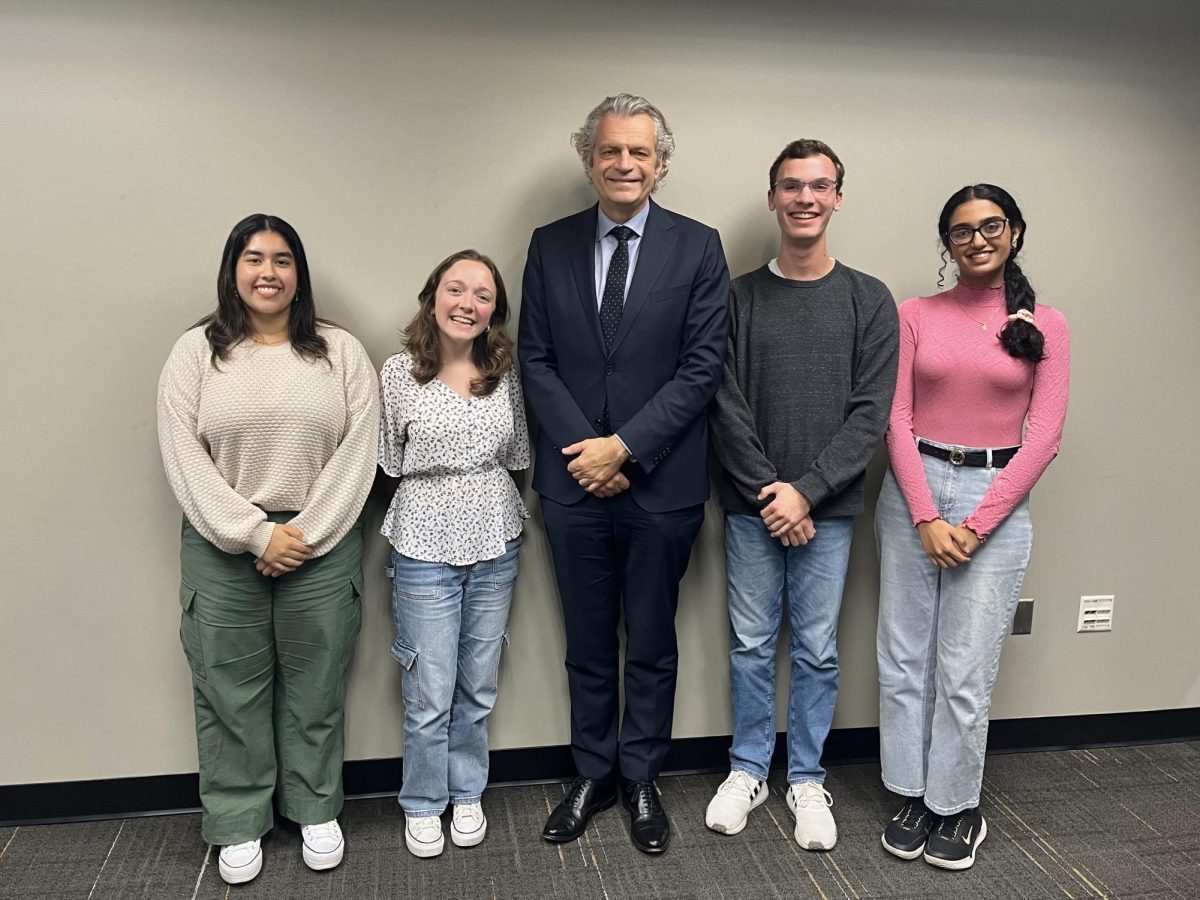Editor’s note: This piece contains mentions of death and suicide.
Students expressed mixed reactions to a VSG statement released on Sunday, May 22 around 9 p.m. CDT. The statement spurred reactions from Vanderbilt’s Hillel and Chabad chapters, the university’s two Jewish life centers, Vanderbilt’s Palestinian community and the university.
VSG’s statement came amidst 11 days of fighting between Israel and Hamas, a Palestinian militant group. The conflict is a continuation of century-long tensions over the occupation of the Gaza Strip and West Bank. Over the course of the 11 days, there were a total of 243 Palestinian deaths and 12 Israeli deaths.
The statement demonstrates support for individuals struggling due to the recent violence between Israel and Palestine and denounces alleged Israeli war crimes.
“The Israeli government must be held accountable for the violent and inhumane treatment towards victims of these militarized attacks,” VSG’s statement read. “We also continue to wholeheartedly advocate for and support the Palestinian community against oppression and capitalism and stand in solidarity with those directly and indirectly affected.”
The statement also explicitly denounces antisemitism.
“There is no place for antisemitism or anti-Jewish sentiment of any kind on Vanderbilt’s campus or beyond when advocating for this liberation,” the statement reads.
Students have taken to social media to express their opinions on these recent statements and the overall conflict. Engagement on social media has also spurred accusations of cyberbullying and threats against members of VSG and the Jewish community. As of print, VSG’s post containing the statement has accumulated 1,133 comments and responses.
Some comments claim that VSG’s statement is one-sided, promotes antisemitism and spreads misinformation, while others express support for the statement and Palestinian liberation. Yousef Abu-Salah, president of ‘Dores in Solidarity with Palestine, also drew attention to alleged Islamophobic comments.
Speaking as a Palestinian student from Gaza, Abu-Salah feels that Palestinian voices have historically been excluded from campus dialogue and appreciates that DSP’s stance on the conflict is properly expressed in VSG’s statement.
“We [DSP] are directly opposed to the Israeli occupation [of Palestine] and we believe that Palestinians are facing human rights violations, discriminatory practices and, even if they chose to live in the country of Israel, they are not having equal treatment,” Abu-Salah said.
Abu-Salah stated that VSG’s statement made him feel supported as a Palestinian student, drawing attention to the effect the conflict has had on his life.
“I’ve seen my family members commit suicide because of the occupation,” Abu-Salah said. “I’ve seen so many things, and I was only lucky to get out because my family snuck on an airplane to force asylum.”
Per Abu-Salah, DSP members were contacted by VSG for their input on the statement’s content before its release. Ester Teper, former president of ‘Dores for Israel and a Chabad board member, and Gabby Parsons, an active member of Chabad, both stated that they were not contacted.
Teper elaborated that Alex Grace, Hillel president, was the only member of the Jewish community consulted by VSG, to her knowledge. Grace confirmed in a May 31 message to The Hustler that VSG contacted her about the statement prior to posting it.
“I did not see the final statement before it was released. I did see an early draft, and stated that many in the Jewish community would receive it with a lot of pain and fear,” Grace said. “I also made clear that a disclaimer about antisemitism would not alleviate this reaction.”
VSG’s statement’s signees have not responded to The Hustler’s requests for comment. Hannah Bruns and Kayla Prowell, VSG student body president and vice president, respectively, declined to comment. Namrah Ajmal, Muslim Student Association (MSA) president, declined to comment.
Reactions from Vanderbilt’s Jewish Community
Following the release of the VSG statement, members of the Jewish community turned to Rabbi Shlomo Rothstein of Chabad for support. He and Nechama Rothstein, Chabad co-directors, released a response on May 23 via an email to members of the organization and a post on their Instagram account.
“The VSG statement is exactly what antisemitism looks like in 2021,” the Chabad letter stated. “Until you condemn Hamas and violent attacks against Israelis and Jews, you are not part of the solution, you are part of the problem.”
Hillel also released an Instagram statement on May 23 in response to VSG’s statement.
“Jewish students at Vanderbilt are being targeted for harassment and abuse for their Jewishness, Zionism, and support of Israel as a Jewish state,” the statement reads. “As VSG’s recent statement demonstrates, the student government that we depend on to help calm these troubled waters has made Jewish students feel unwelcome and threatened by the very leaders we elected to serve us.”
In a May 26 interview with The Hustler, Rothstein described feeling “horrified” and “appalled” after reading VSG’s statement. He elaborated that there has been a recent uptick in violence against Jews under the guise of being “anti-Israel.”
“To see the rhetoric that leads to such terrible abuse—Jew-hatred and physical attacks— being spouted at Vanderbilt University is terrible,” Rothstein said.
Rothstein also drew parallels between modern antisemitism and historical discrimination against the Jewish community.
“These accusations that are leveled against Israel are a modern take on a blood libel,” Rothstein said. “People are making things up that are observably not true but are being used to whip people into a frenzy to hate Jews”
Rothstein and Robert Silverman, a Jewish parent of two Vanderbilt students who Rothstein brought to the interview, said that they found it “antisemitic” that no students from Jewish organizations were listed as contributors on VSG’s statement.
Silverman and Rothstein also disapproved of the omission of Hamas, the 4,300 rockets that were recently launched into Israeli civilian areas or the national rise in antisemitism. Additionally, they objected to VSG’s sole mention of the West Bank land dispute among others.
Another concern Rothstein and Silverman highlighted was the use of the term “genocide” to describe Israeli acts against Palestine. Parsons further emphasized how using the term “genocide” about the actions of the Israeli government is “offensive” and “ironic” given history of Jewish persecution.
“In 1948, there were about 900,000 Arabs living in Israel—now there’s over two million,” Rothstein said. “When there’s a genocide, the population doesn’t more than double.”
Silverman drew attention to the potentially dangerous consequences of blaming the Jewish community for happenings in the Middle East, highlighting the national increase in antisemitism.
“Jewish people get attacked in the street. Synagogues are vandalized, and Jewish property is desecrated,” Silverman said.
Teper similarly stated that she wished VSG’s statement referred to antisemitism in more depth. Conversely, Abu-Salah said he does not think a discussion of antisemitism was obligatory.
“Every time you bring up Palestine, it feels like you always have to bring up antisemitism, and I don’t necessarily think that’s true,” Abu-Salah said. “It begins to reduce it into a religious conflict rather than an illegal military occupation of indigenous Palestinian land.”
Ethan Laney, Chabad president, did not respond to The Hustler’s request for comment.
Petition
Teper and Parsons wrote a response and created a petition against VSG’s statement, which has accumulated over 1,500 signatures as of print.
“In a time when VSG has created a divisive environment on campus, our petition is a reminder of our students’ ability to unite in the face of adversity,” Parsons said.
The Teper/Parsons response claims that VSG’s statement promotes Jewish stereotypes and spreads misinformation regarding the Israeli-Palestinian conflict.
“The fact that VSG took a stronger stance against capitalism than Hamas speaks volumes,” Parsons said. “People have historically associated the idea of ‘taking advantage of’ capitalism with Jewish people when striving to criticize us.”
In addition to the statement itself, Teper said that “biased,” “one-sided” and “anti-Israel” views are also demonstrated in the resources located in the tab on VSG’s LinkTree titled “Donate and Educate Yourself on Palestine.”
“The documents delegitimize Israel’s existence, holding Israel to a higher standard than any other country,” Teper said.
VSG’s LinkTree links to a document titled “Donation Sites and Resources” which includes another document titled “Resources on Palestine” and a link to an article titled “Israel’s hugely controversial ‘nation-state’ law, explained.”
Teper mentioned that Jewish leaders on campus are in contact with the Anti-Defamation League, StandWithUs and other organizations. She said that the Jewish community’s goal is to provide unbiased support and education to all members of the Vanderbilt community.
The Teper/Parsons response concludes by asking VSG to remove and apologize for its statement and to heighten its interaction with the Vanderbilt Jewish community. If these requests are not fulfilled, Teper and Parsons call for the impeachment of VSG’s statement’s signees.
In a May 24 update to the petition, Parsons stated that Chabad would be hosting Zoom meetings for members of the Jewish community, including students, faculty, alumni and parents. A Zoom meeting was held on May 27 geared toward parents and alumni, and another will occur on June 1 geared towards students in the Jewish community.
Reactions to the university’s statement
The university released a statement titled “Discussing the Israeli-Palestinian conflict” on May 24 at approximately 12:30 p.m. CDT.
“We are engaging in conversations in this regard with our students to remind them of the importance of civil discourse and of engaging even on difficult issues with an expectation of civility,” the statement read.
Per Teper, she and other members of the Jewish community believed that the administration’s statement was “underwhelming.” Rothstein similarly found it to be “unsatisfactory” and “infuriating.”
“[The university] washed their hands of it and made it not their issue. It didn’t mention anything about rising hatred towards Jews,” Rothstein said. “I would really like to see the university create a comprehensive approach to keeping Vanderbilt a safe place for Jewish students.”
Parsons and Rothstein feel that the administration has taken strong stances against hate crimes and human rights violations such as crimes against the Asian American Pacific Islander community and other racial justice issues in the past. However, they feel they have failed to properly respond to the national rise in antisemitism.
The university’s statement also commented generally on the role of student organizations and their influence.
“Student organizations do not speak for the university or the overall Vanderbilt community,” the statement read.
Both Teper and Abu-Salah disputed this statement and said it contradicts the purpose of VSG.
“VSG is supposed to be an umbrella representation of the student body. The senate members were elected, the presidents were elected—that directly means that they represent the student body,” Abu-Salah said.
Parsons said that the university is working with members of the Jewish community to address the concerns raised with the administration’s statement.
“Chancellor Diermeier intends to meet with a small group of Jewish students to better understand how the Vanderbilt administration can support Vanderbilt’s Jewish community, which is a step in the right direction,” Parsons said.
Abu-Salah said that, to his knowledge, no members of the Vanderbilt Palestinian community have been in contact with the university.
Moving forward
Abu-Salah recognized that all involved in the conflict are facing hardships.
“It’s an extremely sad thing,” Abu-Salah said. “There are innocent lives lost on both sides—I’m not going to devalue the Israeli lives lost, nor am I going to demonize every single Israeli person on the planet.”
Teper expressed she wants to rebuild relationships between VSG and the Jewish community to move forward with mutual respect and understanding.
“We want to be allies to anyone and everyone,” she said. “VSG is an org that has historically been supportive of the Jewish community and we have been able to maintain positive relations with previous administrations—we would love to see them at a Shabbat dinner!”










